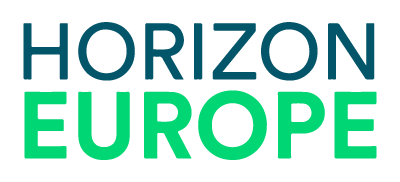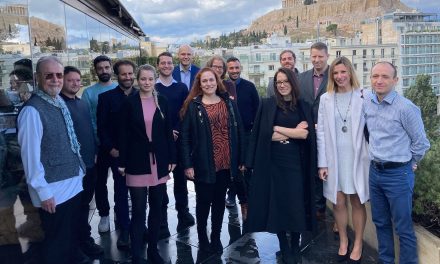BUDDIE-PACK, a Horizon Europe-funded project, is seeking ways to eliminate single-use plastic in certain sectors in a bid to remove thousands of tonnes of plastic waste from the environment.
With 19 partners across six European countries, the project is focused on developing reusable plastic packaging for the food and home care sectors.
The partners include PRISM, a specialist polymer research institute that is part of TUS (Technological University of the Shannon), and Waterford-based Dawn Meats Group as an industry partner, as it sets out to “dramatically cut down the production of single-use plastic packaging, reduce water and energy consumption, and avoid the release of microplastics into the oceans”.
Focus on the meat industry
The 3.5-year Horizon Europe project, which started last September, received €8.3m in funding with around €900,000 awarded to the two Irish partners.
BUDDIE-PACK is looking at six business cases for reusable packaging, each one led by a company. The use cases include refillable bottles, catering trays and the packaging used in take-away and on-the-spot consumption.
PRISM and Dawn Meats are focusing on the meat industry, given its importance to both the Irish and EU economy and the amount of packaging used in the sector.
“We’re looking specifically at skin pack trays. The trays that pack your steak, for example, that have a skin-like film on top of it and that are vacuum-sealed,” says Romina Pezzoli, Applied Packaging Platform Lead at the Applied Polymer Technologies Gateway, part of PRISM and one of 16 specialised gateways* funded by Enterprise Ireland.
Pezzoli, a task leader on the BUDDIE-PACK project, says of reusability: “We know we can do it for a coffee cup. The question is, how does that translate to other applications?”
Previous experience
BUDDIE-PACK is Dawn Meats’ second venture as an industrial partner, having been a partner in the earlier nanopack Horizon 2020 Consortium. The family-owned business is one of Europe’s largest food processing companies.
“It’s important for Dawn Meats to be involved at the cutting edge of European packaging research in guiding researchers to make a material impact in our business”, says Peter Mooney from Innovation@Dawn, who manages European projects.
“It’s vital to have a clear understanding of what business/use case you want to explore, and work closely with the researchers through the process. Enterprise Ireland National Contact Points have also been invaluable in advising the company how to navigate through the complexities of Horizon projects from an administrative point of view.”
Push for reusability
BUDDIE-PACK gets underway amid an EU drive to increase reusability, a key element in the sustainability hierarchy. PRISM director Declan Devine notes that the EU is developing quotas for reuse of plastic and that some countries like France have already introduced laws to govern reuse.
“Alternatives to plastic like glass and metal are not necessarily more environmentally friendly due to the high energy usage required to process and reprocess these materials during recycling,” he says.
He also notes that plastic packaging plays a critical role in reducing food waste. “That is frequently overlooked when people start talking about plastic waste. The truth of the matter is that we can’t really do without it, what we need to do is do it better.”
Professional writing service
PRISM became involved in the project through its membership of ECP4, the European Composites, Plastics and Polymer Processing Platform, an industry-driven collaboration.
The initial approach came from the French-based Industrial Technical Centre for Plastics and Composites (IPC), which is coordinating the project and oversaw the funding application.
“It was a big undertaking,” says Devine, noting the project covers every aspect of food packaging and falls into the very competitive material science space.
He says that the BUDDIE-PACK partners used “a professional writing service to help draft the proposal and then put a lot of time into it as well.”
Don’t be afraid to apply
Devine advises newcomers not to be afraid to apply for Horizon funding, even if they are not immediately successful.
“A lot of people are put off applying because of the low success rates. But if you can build a consortium and you develop an idea that’s strong enough, even if it’s not funded, at least you have the consortium – you have something to build on for the next time.”
Having the right partners, both academic and industrial, is also key, according to Pezzoli. “As they are the ones that feed you the real problems, having relevant industry partners is key to a good proposal.”
Peter Mooney adds: “From a company point of view, it is initially less onerous to be involved as an industrial partner, and once you have a track record in Horizon, it is easier to be invited to partner with strong consortia. Academic partners who write the proposal tend to wait to add industrial partners until near the end of the application process, and can then struggle to find the right ones to work with.”
Engagement is crucial
Devine has availed of support from Enterprise Ireland when applying for Horizon funding in the past. “That helped us to dip our toe in the water, to develop our own strategy for applying,” he says.
More recently, he secured an Enterprise Ireland Travel Grant, so he could attend ECP4 meetings, the source of the spark that ignited BUDDIE-PACK.
“The engagement with the group, in person or online, is crucial to get invitations and to co-develop projects and also to build our own consortium for projects that we want to coordinate. The best way to build those relationships is actually to meet people.”
If you would like advice about accessing Horizon Europe support or further details, please contact horizonsupport@enterprise-ireland.com or visit www.horizoneurope.ie
*The Enterprise Ireland Technology Gateway Programme is co-financed by the Government of Ireland and the European Union through the ERDF Southern, Eastern & Midland Regional Programme 2021-27.





